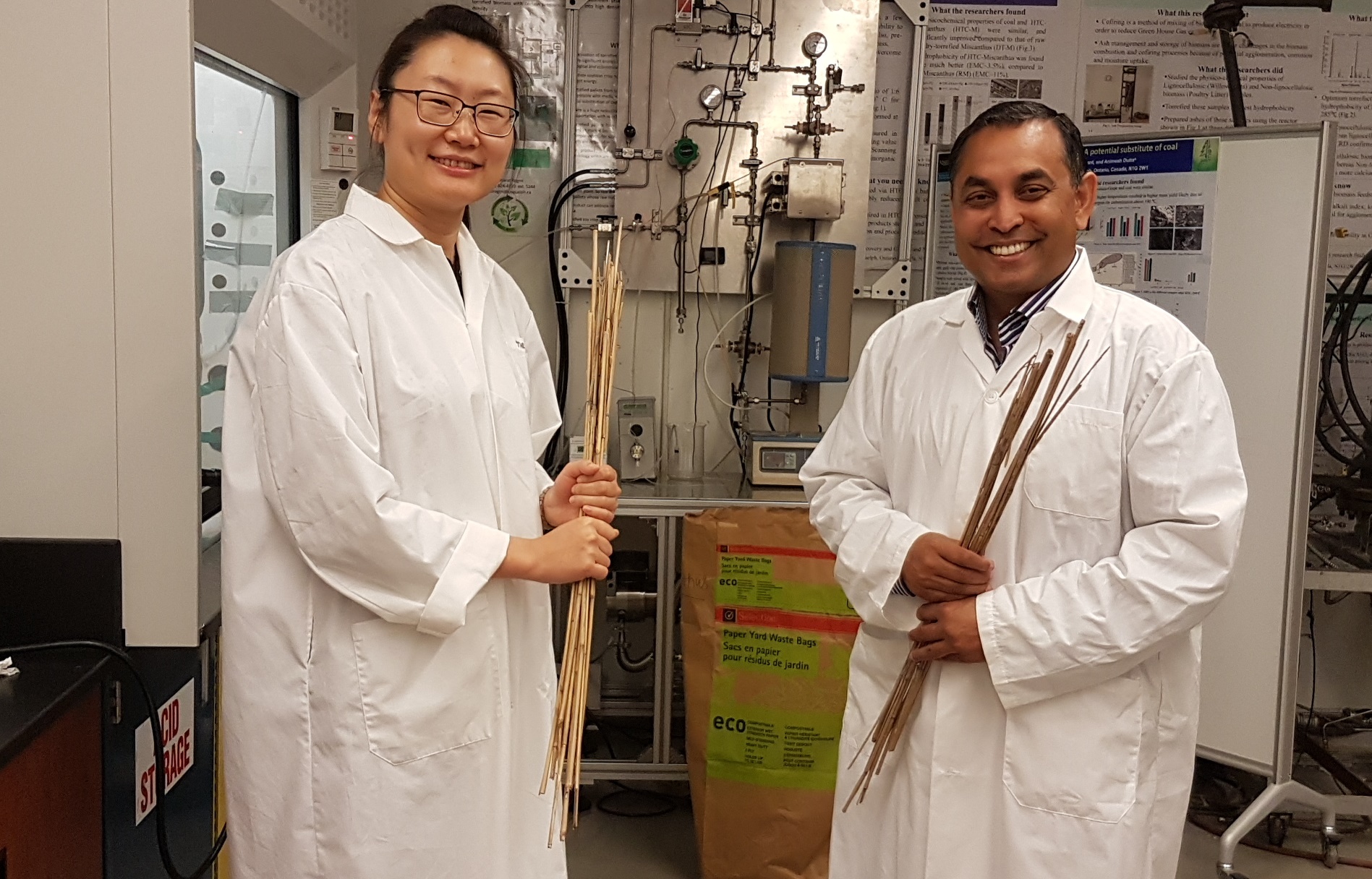University of Guelph projects, ranging from converting agri-food waste into energy to improving health of young children, received more than $630,000 in federal funds today.

Five U of G projects will receive funding from the Canada Foundation for Innovation (CFI), it was announced by Minister of Science Kirsty Duncan in Sudbury, Ont.
The funding will be provided through CFI’s John Evans Leaders Fund (JELF), created to help universities attract and retain leading faculty and researchers.
“Ensuring that our scientists are well-prepared with the absolute paramount in tools and equipment for research and discovery is what we’re here for,” said Duncan.
“These journeys can lead to achievements such as an improved economy and a better job market, and can also fuel an active research community here in Canada and internationally.”
In total, CFI will contribute more than $52 million for 220 new infrastructure projects at 51 universities.
“We are delighted that leading University of Guelph researchers will have the tools they need to solve the complex issues facing society, creating the innovations of tomorrow,” said Malcolm Campbell, U of G vice-president (research).
“While the U of G researchers that garnered this support investigate different topics, they all share the goal of pushing the frontiers of their disciplines, using their research excellence to make new discoveries – growing knowledge and fueling innovations that improve life.”
Engineering professor Animesh Dutta will receive $177,127 from CFI. Along with engineering professors Shohel Mahmud and Emily Chiang, he will study how to turn agri-food waste into bioproducts including bio-carbon, a potential replacement for coal; bio-oil, a possible substitute for petroleum; and syngas, an alternative for natural gas.
“Unlike other research that may look at just one element of a bioproduct, a unique aspect of our biorefinery approach is to target the recovery of value from every part of biomass conversions,” said Dutta.
“We will see if renewable products have the characteristics needed to replace fossil fuels and petroleum products. We hope to use under-valued biomass to develop novel bioproducts, giving sustainable advantages to local companies, creating green jobs, addressing environmental concerns and contributing toward the provincial government’s green energy push.”


Developing strategies to reduce obesity is the primary goal of the Guelph Family Health Study (GFHS) led by Profs. David Ma, Human Health and Nutritional Sciences (HHNS), and Jess Haines, Family Relations and Applied Nutrition.
They received $126,144 for “bod pods,” a cutting-edge tool for measuring body fat. Study participants will also receive wearable devices to track physical activity and sleep.
“It is an honour to be selected as recipients of CFI/JELF funding, especially in this highly competitive environment,” said Ma.
“The new infrastructure will help facilitate family recruitment and elevate our ability to capture high-quality data.”
Haines said their long-term goal is to reduce health-care costs by preventing serious chronic diseases such as diabetes, heart disease and cancer.
“Already, based on feedback from families in our cohort, we are seeing an impact in how they feel, move, eat and sleep,” she said.
Other JELF recipients at U of G are:
- Ze’ev Gedalof, Geography, $35,323 for micrometeorological instruments to evaluate forest migration and treeline advancement;
- Chris Whitfield, Molecular and Cellular Biology, $142,358 for protein crystallography to advance microbial cell biology; and
- David Wright, HHNS, $153,359 to assess in vivo tissue morphology.